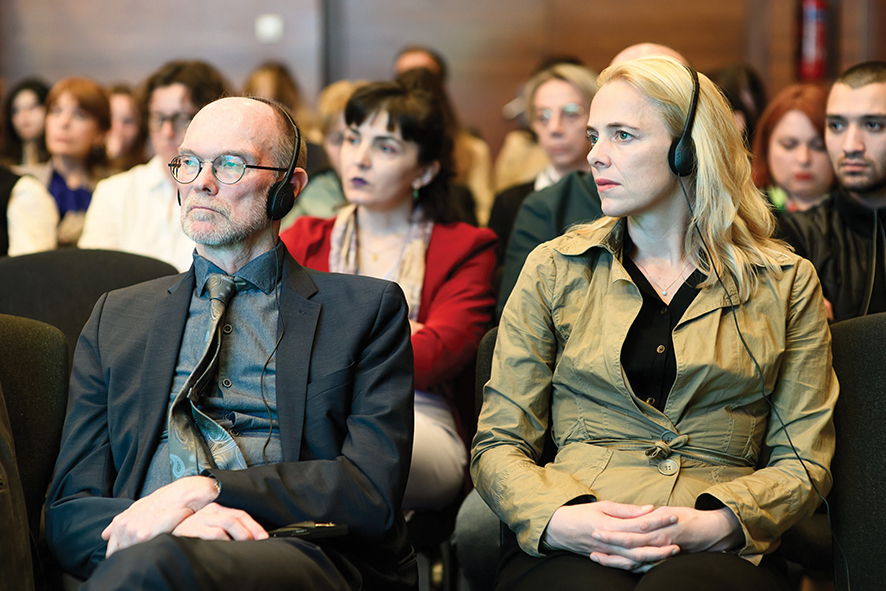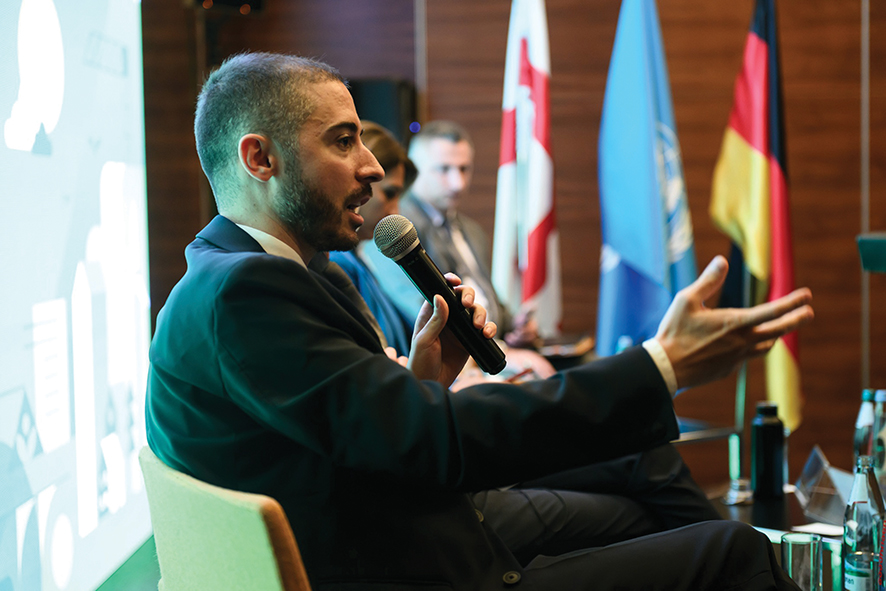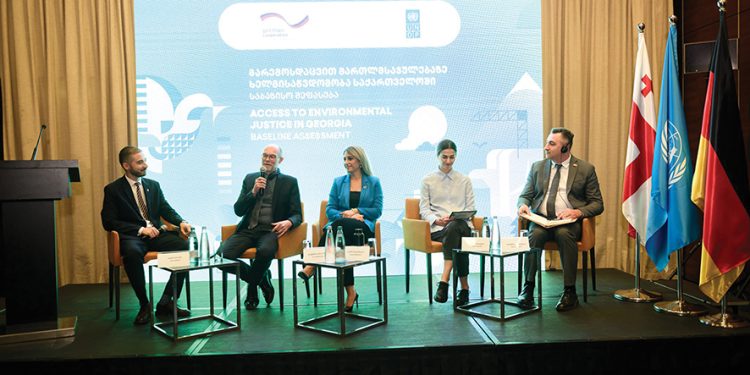The United Nations Development Program (UNDP), with support from the German Government, released a comprehensive study focused on advancing environmental justice in Georgia. This research examined the legislative and practical landscape and pinpointed specific challenges, while also presenting recommendations to further environmental justice in Georgia.
On 30 October, the research findings were presented to the public, with attendees including representatives from the Judiciary, Georgian Government, civil society, and international organizations. The event featured a special address by Prof. Dr. Thomas Schomerus, a distinguished member of the Aarhus Convention Compliance Committee.

Lidija Christmann, Head of Development Cooperation South Caucasus at the Embassy of Germany to Georgia, emphasized the importance of this initiative: “Climate change and environmental pollution exert their impacts on Georgia, just as they do on the rest of the world. These pressing concerns affect people and make societies more vulnerable. Germany supports Georgia in protecting the fundamental human right to a clean, healthy, and sustainable environment. We are assisting Georgia in evaluating its legal framework to ensure equitable access to environmental justice for all.”
Douglas Webb, UNDP Resident Representative a.i. in Georgia, noted that a robust legal framework exists at the international level to guide Georgia in strengthening environmental justice and safeguarding its citizens from environmental harm. “Our research acknowledges Georgia’s progress in recent years, uncovers remaining challenges, and offers a set of recommendations for various institutions to bridge the gap between the country’s existing practices and its international commitments.”
Conducted by a team of international and local experts from July to September 2023, the study primarily focuses on the legal aspects shaping the dynamics of environmental justice in Georgia. The findings are based on comprehensive desk research and 27 in-depth interviews with various state and non-state representatives, aiming to gather background information, statistics, and insights.
The study reveals that the legal framework for environmental justice in Georgia is well-established. The Aarhus Convention is directly applicable, and the Constitution firmly enshrines the right to a healthy environment, emphasising access to information and public participation. Additionally, Georgia’s legislation allows anyone to seek judicial remedies for violations of environmental laws. The country boasts functioning administrative agencies and judicial bodies, making both procedural and substantive challenges to environmental decisions possible.

Barriers are described, however, that hinder effective access to environmental justice in Georgia, giving citizens the feeling that they cannot achieve effective legal remedies for environmental issues through conventional channels.
Barriers to environmental justice are both systemic, like lengthy delays in court reviews that can deny justice, and case-specific, such as shortage of qualified judges or too narrow interpretations of national laws that together can harm the right to a clean, healthy, and sustainable environment.
Additional barriers mentioned in the research include a lack of accessible and inclusive public hearings for infrastructural and other development projects that affect the environment, as well as cases where requests for information are either ignored or answered inadequately.
The recommendations offered address the identified barriers and promote a more inclusive, transparent, and effective environmental justice framework in Georgia. They encompass the improved enforcement of environmental legislation, timely judicial reviews and procedures, capacity-building of rule of law institutions and public agencies, public awareness raising, the availability of quality legal aid, and support for civil society.
The full research report is available on the UNDP website.
###
UNDP and Germany’s collaborative support for environmental justice in Georgia is part of a broader US$1.62 million initiative funded by Germany and implemented by UNDP. This initiative is designed to enhance the capacities of rule-of-law institutions, improve access to disability-inclusive infrastructure, and ensure the legal empowerment and socio-economic resilience of disadvantaged communities.














